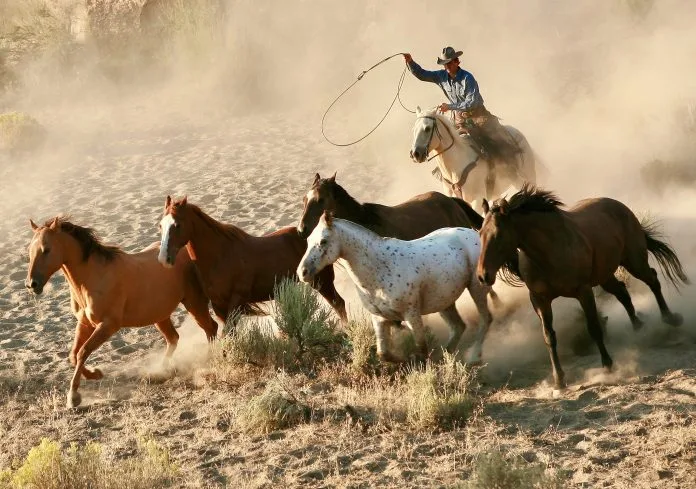“A coalition of wild horse advocates, conservationists, and academics has appealed a recent court decision that endorses a controversial plan to remove nearly 5,000 wild horses and eliminate 2.1 million acres of their habitat in Wyoming’s Checkerboard region, including the vital Red Desert—home to some of the state’s last wild horses.
The appeal, filed with the Tenth Circuit Court of Appeals, contests a lower court’s approval of the Bureau of Land Management’s (BLM) plan. This court order, issued last Wednesday by the U.S. District Court for the District of Wyoming, grants the BLM broad authority to dismantle Herd Management Areas and begin rounding up wild horses as soon as October 1st, directly challenging the federal Wild Free-Roaming Horses and Burros Act.
The plaintiffs in this case include American Wild Horse Conservation, the Animal Welfare Institute, Western Watersheds Project, author Chad Hanson, and wildlife photographers Carol Walker and Kimerlee Curyl.
Suzanne Roy, executive director of American Wild Horse Conservation, criticized the decision, stating, “If upheld, this flawed ruling would empower the BLM to eradicate federally protected wild horses and burros from our public lands. We anticipated that this case would be reviewed by a higher court, and we are returning to the Tenth Circuit Court of Appeals, where we have previously succeeded in defending the Red Desert’s wild horses against this eradication effort.”
This lawsuit, filed last year, represents the culmination of a decade-long struggle against the Rock Springs Grazing Association’s (RSGA) push to remove wild horses from over 2 million acres in the southwestern part of Wyoming, known as the Checkerboard. The RSGA, which grazes private livestock on public lands within this region, views wild horses as competition for forage subsidized by tax-payer fees.
Joanna Grossman, Ph.D., equine program director for the Animal Welfare Institute, emphasized the significance of the Wild Free-Roaming Horses and Burros Act, stating, “Congress passed this Act in 1971 to recognize these animals as an integral part of America’s landscape. The district court’s decision undermines the rightful place of federally protected horses on public lands designated for their habitat—lands the BLM acknowledges can support these cherished herds.”
The lawsuit, initiated by Eubanks and Associates, challenges a BLM Record of Decision approving a contentious land use plan amendment. This amendment proposes reclassifying the Salt Wells Creek and Great Divide Basin Herd Management Areas (HMAs) to Herd Areas, allowing for zero wild horses. This reclassification would effectively remove all wild horses from these popular viewing areas.
Furthermore, the plan suggests drastically reducing the size of the Adobe Town HMA by about half and lowering the wild horse population to below 1,338, a number previously deemed essential for maintaining a ‘thriving natural ecological balance’ with other land uses.
Protecting wild horses is crucial for maintaining ecological balance, as they play a key role in sustaining healthy grasslands and promoting biodiversity. Their presence enriches ecosystems, supporting a variety of plant and animal species.
Wild horses also hold cultural and spiritual significance, representing freedom and the American frontier while being important to Indigenous communities. Ethically, their preservation reflects our responsibility to ensure animal welfare and protect our natural heritage.”
